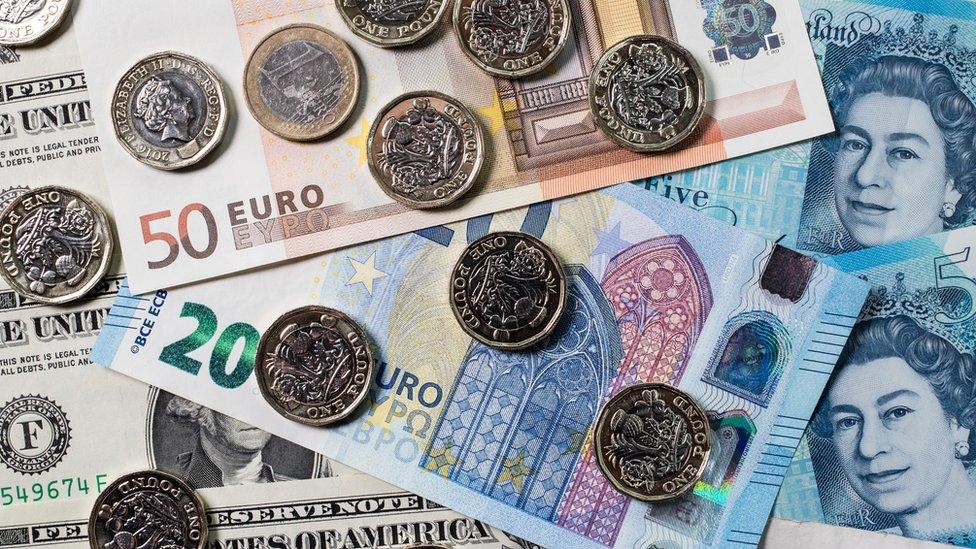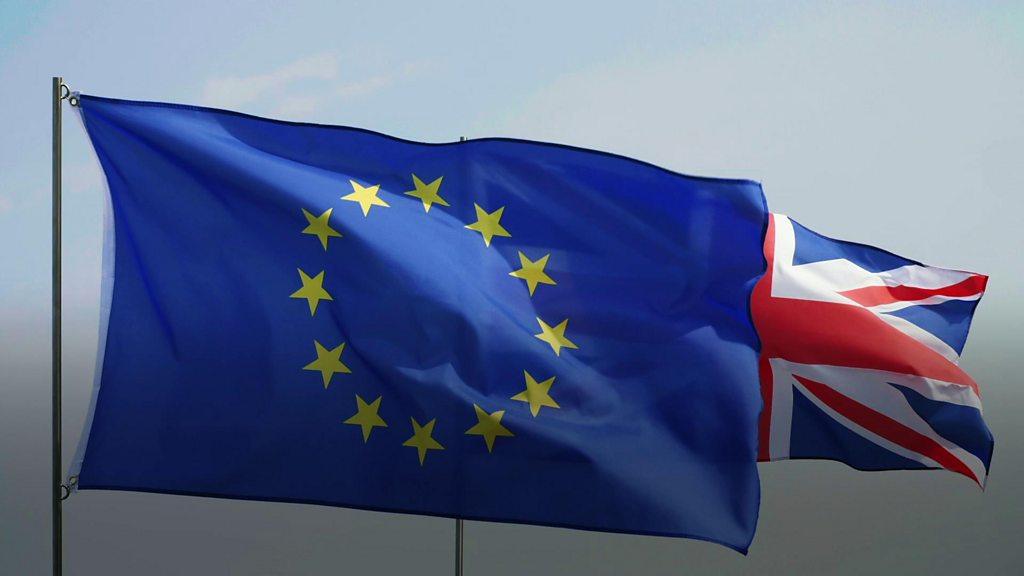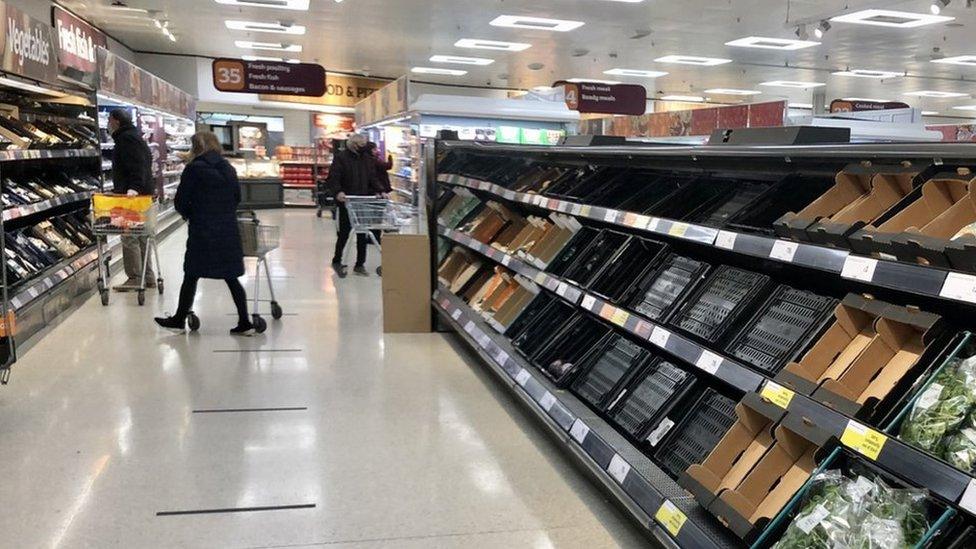Brexit: NI firms' increased costs 'linked to red tape'
- Published
- comments

Northern Ireland firms increased their prices last month at the highest rate since 2018, according to an Ulster Bank survey.
It says firms saw their costs rise at the highest rate in the UK, largely as a result of higher shipping costs.
Every month the bank asks firms across the private sector about things to determine their economic performance.
Staffing levels, new orders and exports are considered to be reliable indicators.
Ulster Bank's Chief Economist in Northern Ireland Richard Ramsey said: "Northern Ireland's firms signalled the highest rate of input cost inflation across the UK with input prices rising at the fastest rate since June 2018."
"Higher shipping costs were widely cited alongside higher raw material costs and increased transport costs linked to the new Brexit arrangements."
"As a result of these cost pressures, local firms, most notably retailers, hiked the price of their goods and services at the fastest pace since October 2018."
The survey also said output in the private sector fell at the sharpest rate in January since last May because of lockdown restrictions.
Mr Ramsey said: "Profit margins are being squeezed across all sectors but particularly construction."
"2021 has been the year of the rollout on two fronts. The rollout of the vaccine will be the single biggest factor driving economic performance later in the year.
"Meanwhile, the rollout of red tape linked to the new Brexit arrangements will hinder Northern Ireland's economic recovery by adding costs to business and restricting trade.
"While Northern Ireland has the advantage of remaining within the EU's single market for goods, it finds itself on the wrong side of a regulatory sea-border which has effectively redrawn the map of the UK's single market and customs union" he added.
Related topics
- Published4 February 2021

- Published4 February 2021

- Published31 January 2021
